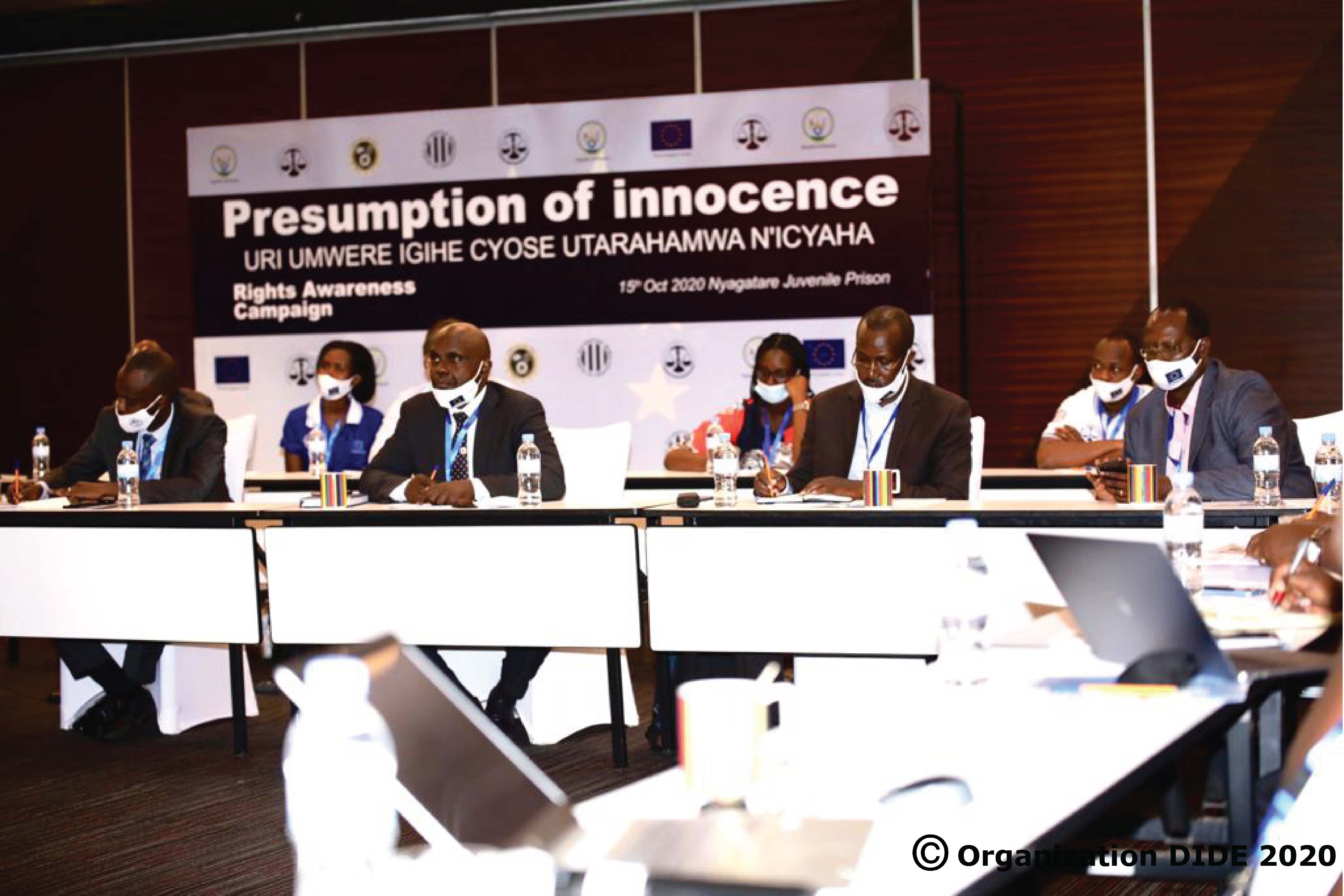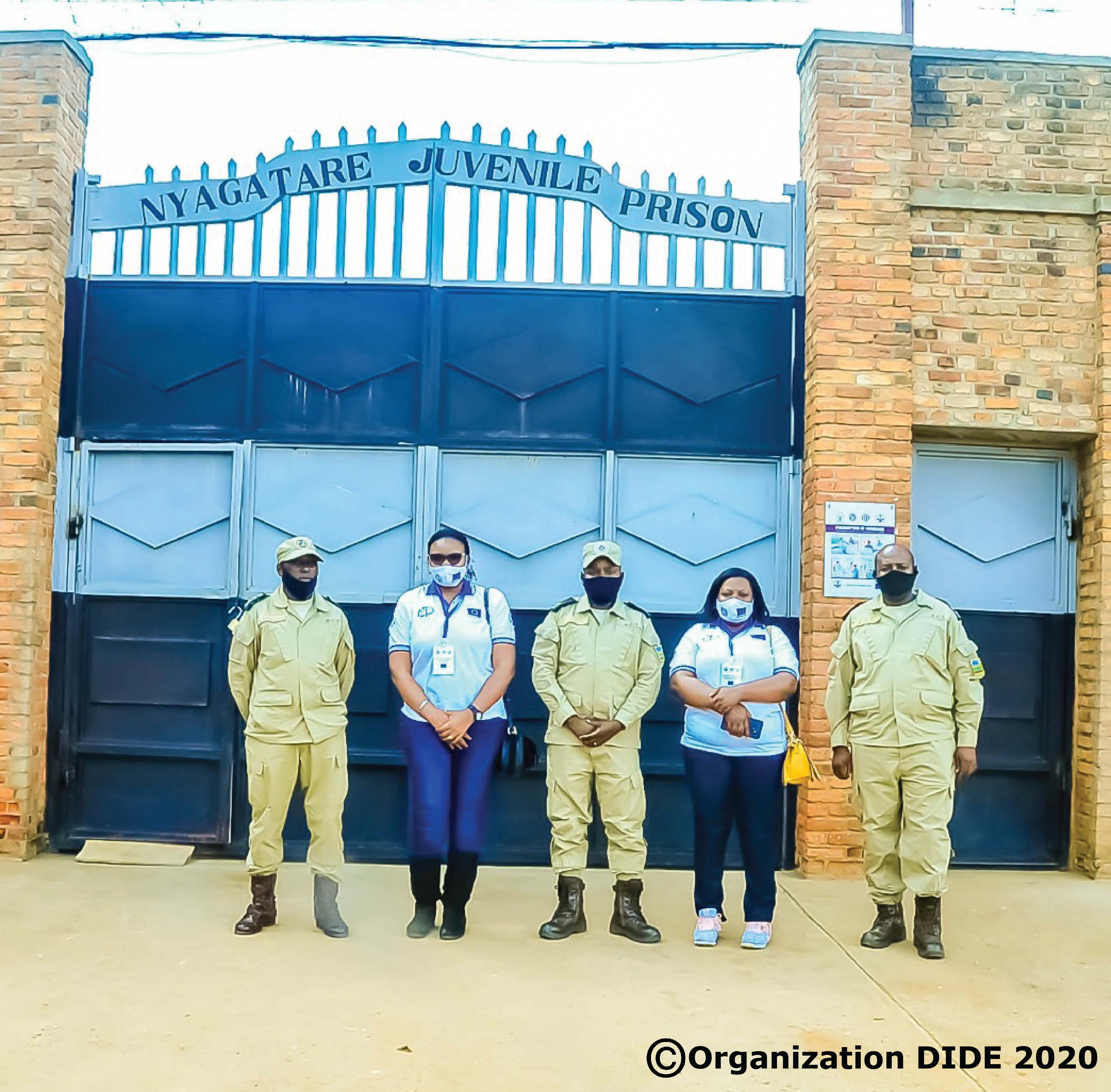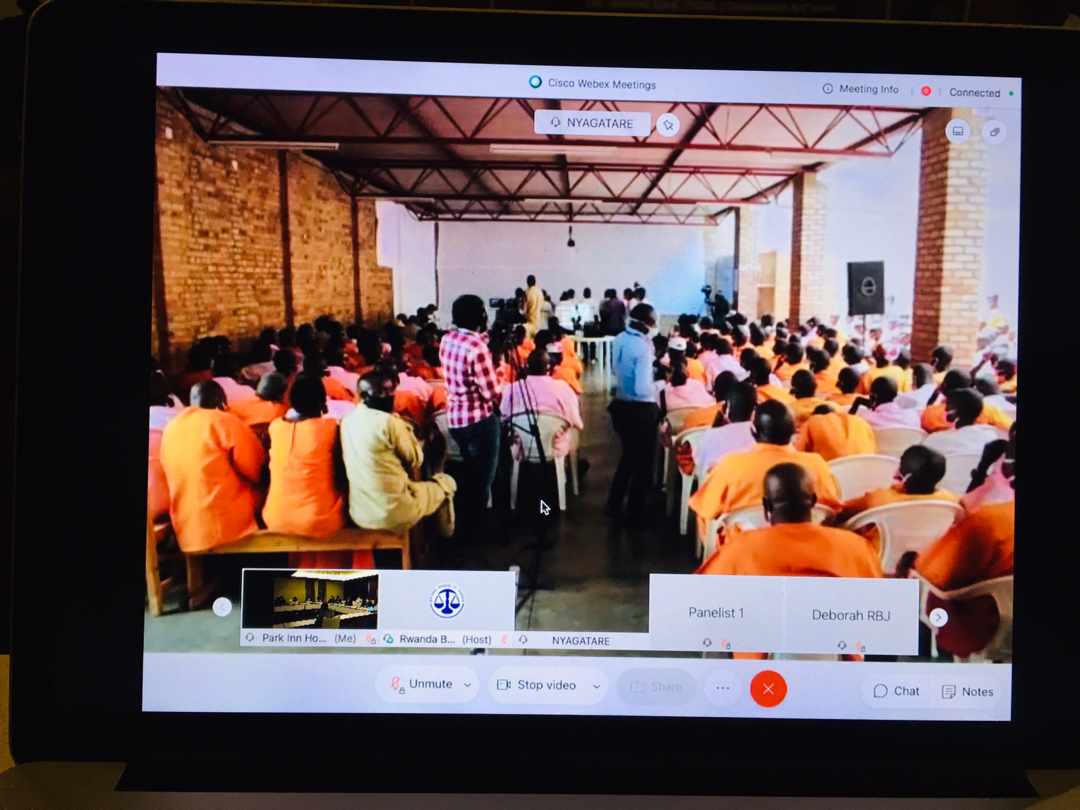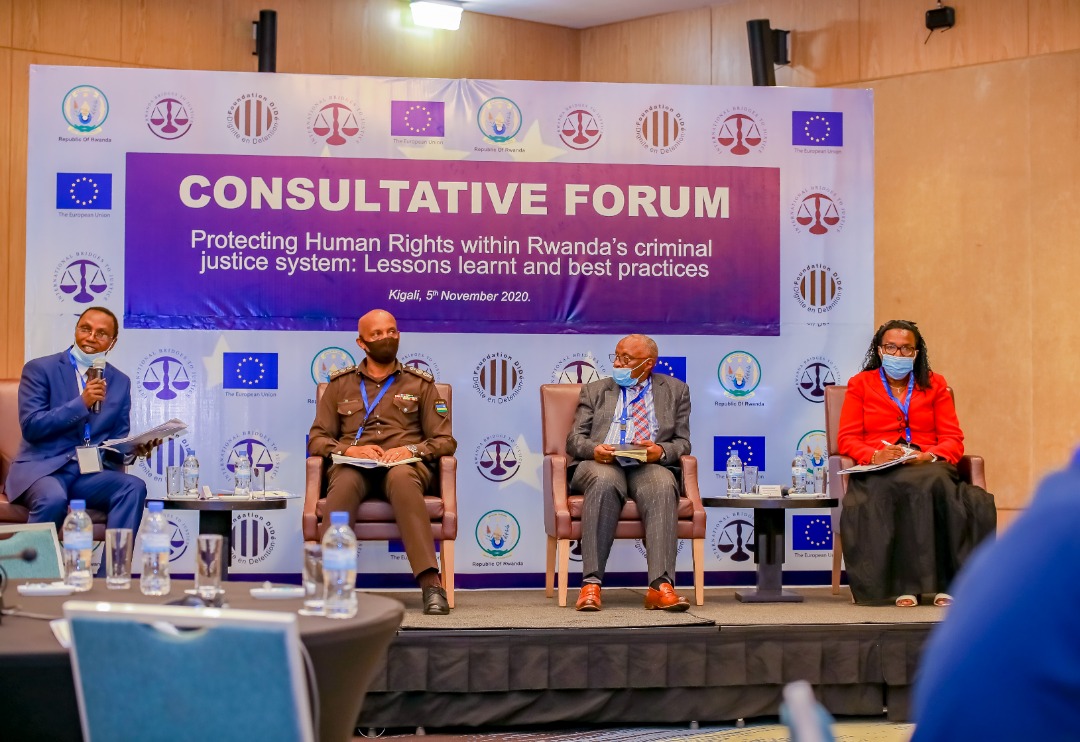Between January 2018 and January 2021, RBJ, IBJ and DiDé ensured the successful
implementation of the “Protecting Human Rights within Rwanda’s Criminal Justice System” project, overcoming considerable obstacles caused by the Covid-19 global pandemic.
Implemented in the prisons of Nyarugenge, Rwamagana, Bugesera, Ngoma and Nyagatare, DiDe activities this project specifically focused on psycho-social assistance for the most vulnerable detainees, strengthening of capacities of “Peer educators” as well as those of the prison staff of the Rwanda Correctional Service (RCS).
The project included the following activities:
1. Psycho-Social Assistance to detainees of the five prisons of Kigali and the Eastern
Province.
2. Training Workshops
3. Right-Awareness
4. Consultative forum
2.1. Psycho-Social Assistance to detainees of the five prisons
Training of prison staff 254 staff were trained in the 5 prisons covered by the project within four sessions per prison.
The trained staff include the prison’s administrative staff; medical and social services as well as guarding staff. Before the training began a training module was developed by DiDe’s consultant psychologist in collaboration with the project psychologist.
Through a methodology that encouraged active participation and group work, the 69
participants were able to increase their understanding of the mental health of detained persons they also understood what "institutional cure" is and their role as prison companions beyond their various responsibilities and committed themselves to changing their behaviour and improving relationships with people in detention.
dentification and training of "peer educators"
At the beginning DiDé recruited 250 peer educators, including 33 women and 5 minors taking into account the population of each prison. Nyarugenge prison(85),
Rwamagana(100), Bugesera(45) , Ngoma(15), Nyagatare (5minors) in addition to adult who have been trained previously by DiDé.
During the project implementation period, some trained peer educators have obtained parole or presidential pardon, and it is in this context that other 58 new peer educators were trained 13 too to strengthen the team of peer educators already trained. Those are 20 women of Ngoma prison, 38 at Nyagatare Juvenile prison including 2 women and 2 minors. The idea was also to fill the gap after the release of those peer educators who have been granted parole. The total number of peer educators trained is 308 including 55 women and 7 minors.
Identification and treatment of cases requiring psycho-therapies
The identification of detainees in psychological distress is done by peer educators. The identification channel was becoming more and more solid as it is demonstrated by its efficiency. In addition to the identification work, five diagnostic tools have been developed and translated into Kinyarwanda by the consultant psychologist in collaboration with the project psychologist.
From January 2018 up to December 2020, 4989 cases requiring psychological assistance were identified in the 5 prisons and have been provided with mental health and psycho-social support. Among these cases, 3935 cases have been taken up individually by the prison psychologists (also trained by the project), 322 persons followed individual therapy with DiDé psychologist and 732 cases in need of psychiatric assistance have been referred to the District hospital or to the neuropsychiatric hospital for psychiatric assistance.
In 2020, 2417 people were identified in the 5 prisons and provided with mental health and psycho-social support.
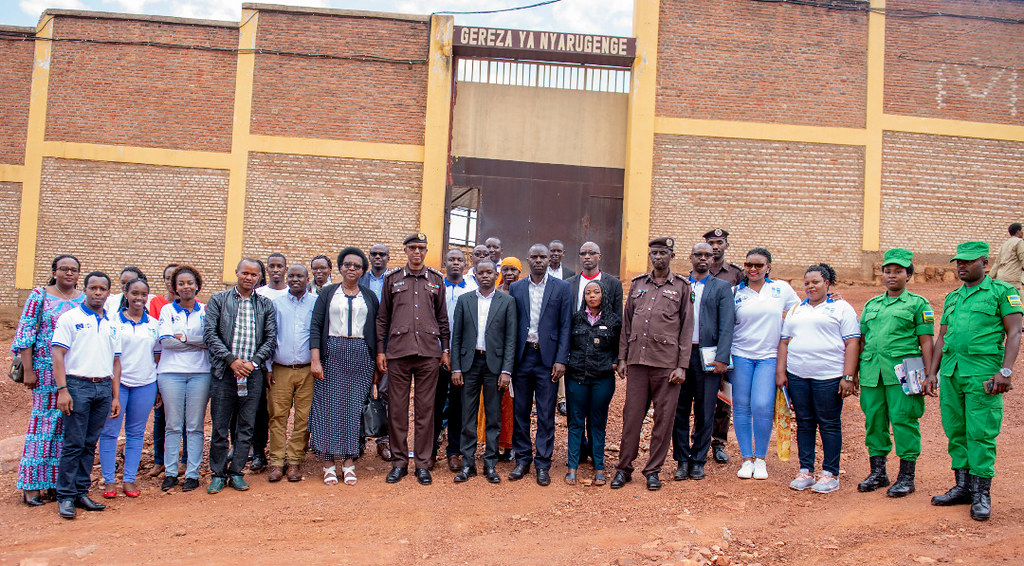
Rights awareness campaign at Nyagatare prison
One last rights-awareness events took place at Nyagatare Juvenile prison in October 2020.
Due to Covid-19 pandemic, this event was organized partly on-site (2 staffs of DiDe and RBJ present at Nyagatare prison premises) and partly online (invitees gathered at Radisson Hotel in Kigali and linked by Video to Nyagatare event).
Awareness campaign on the rights of detainees via radio broadcasts
The campaign carried out by the DiDé in partnership with Rwanda Bridges to Justice (RBJ) in support of the Rwandan authorities aimed at improving the criminal justice system.
In total, 8 15-minute radio broadcasts were produced, four of which were directed by DiDé and four directed by RBJ. They were broadcast every week for a period of 2 months (October November 2019) on “Radio One” in Kinyarwanda. The broadcasts were moderated by the Delegate of DiDé and / or the Director of RBJ and involved various national and local experts speaking on the various subjects discussed during them.
